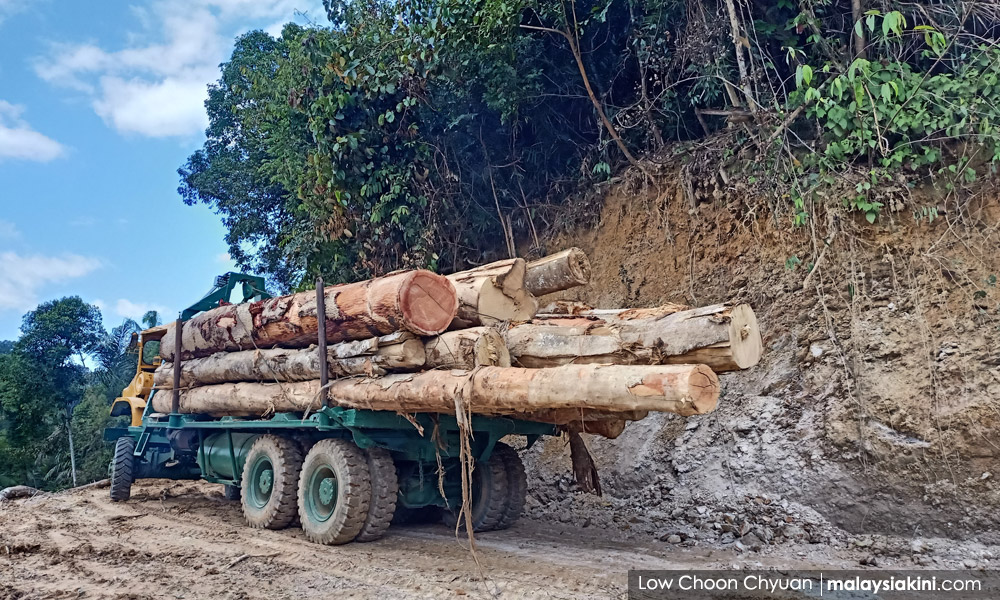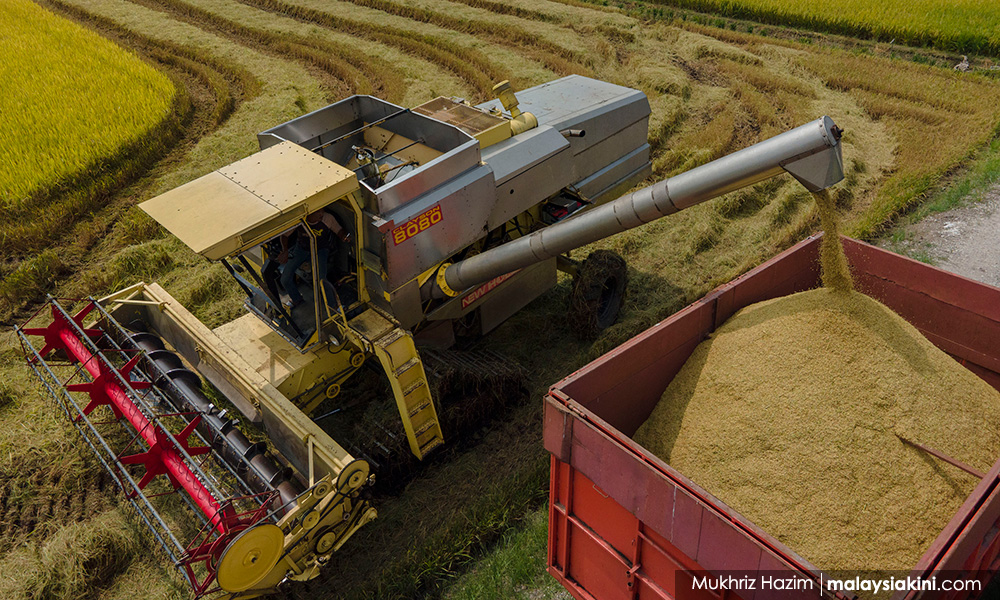LETTER | Heed warnings from Mother Earth
LETTER | It is Earth Day once again today (April 22). As we have said before, it is not enough to dedicate one day in a year to remember mother earth if we are to save her and save ourselves.
We must remember her every day and put the environment and ecology at the centre of decision-making if we are to prevent future calamities that result in catastrophic environmental impacts which also have economic implications.
We have seen this for example in the case of the devastating impacts of massive floods from intense rain episodes which are increasingly linked to climate change, as well as water cuts and shortages due to the pollution of our rivers and the mismanagement of our river basins and deforestation.
What is deeply frustrating and depressing is that we continue to learn about activities that undermine our sustainability.
News reports surfaced this week that according to a survey by the Rimba Disclosure Project (RDP), forests totalling nearly the area of Singapore, or roughly three times that of Kuala Lumpur, have been earmarked for clearing in Peninsular Malaysia.
The report states that Malaysia will see deforestation amounting to at least 72,584.73ha in the near future, as 86 environmental impact assessment (EIA) reports involving forested land have been approved, 28 listings of forests for sale have been identified, and one project involving deforestation is ongoing.

We have also learnt of massive reclamation projects with very serious environmental impacts including the huge volumes of sand-mining and rock quarrying that will take place for these projects, and the destruction of environmentally sensitive areas.
These are being pushed by several state governments, including the latest revelation of the Maharani Energy Gateway for oil and gas storage in Johor.
Climate-resilient development
All these planned projects come at a time when the most recent report of the Intergovernmental Panel on Climate Change (IPCC) on “Impacts, Adaptation and Vulnerability” has stressed the need for climate-resilient development.
Among one of the many messages is that “human-induced climate change, including more frequent and intense extreme events, has caused widespread adverse impacts and related losses and damages to nature and people, beyond natural climate variability… the rise in weather and climate extremes has led to some irreversible impacts as natural and human systems are pushed beyond their ability to adapt.”
Instead of reducing our vulnerability to climate impacts, our current unsustainable development trajectory is increasing the risks and our ability to be climate-resilient.
It is most timely that a large coalition of NGOs under the banner of ‘Gabungan Darurat Iklim Malaysia’, which includes Sahabat Alam Malaysia (SAM), had on April 20, demanded that the government at the federal, state and local levels “declare a climate emergency in Malaysia no later than Sept 16 (Malaysia Day)”.
It has also proposed detailed recommendations to address the climate emergency with a “strong political will”. We hope this call is taken seriously.
Unsustainable projects
It is not sufficiently realised that the environment and natural resources are the foundation of the economy and they set the parameters of how much economic growth can be sustained.
We once again call for transformative commitments and paradigm shifts in the way we produce and consume. A fundamental rethink and shift in mindset are most needed.
We cannot continue to promote unsustainable business-as-usual projects all over the country, that are not only grossly expensive but also destroy our food security, at a time when we must do all we can to protect our food-producing sectors, including our fishery resources and farms.
It is unacceptable to destroy our food-producing sectors when food prices and food imports are sky-rocketing.

This destructive and unsustainable business-as-usual approach has to change. These are some critical areas where priority must be given.
Climate action
First, we must take on climate change seriously and ensure greater ambition and action on mitigation, adaptation and efforts at addressing loss and damage.
We welcome the recent government initiatives to step up climate action including through the establishment of the Malaysia Climate Change Action Council, as well as in embarking on climate legislation, and forming a National Adaptation Plan.
These positive initiatives should be expedited with urgency, and climate change is mainstreamed into all levels of government, from the federal, state to local levels, including in our education system. These efforts need to move at a more urgent pace.
Conservation
Second, we need to urgently tackle the related issues of forest and soil conservation, river management, flood prevention and mitigation, and ensuring enough water supply, in an integrated manner.
Forests and trees are the foundation of ecology, water supply and management and biodiversity. The chopping of forests, especially in hills, either for logging, plantations or commercial projects, should be stopped or drastically reduced as it has gone too far.
Recent measures to make available funds for forests protection, conservation and rehabilitation from the federal to the states are welcome but once again, these efforts too must be expedited.
SAM is however gravely concerned about the promotion of carbon offset projects involved in forest conservation efforts, through the engagement of corporate interests.
Experiences abroad have shown negative impacts, especially on local communities and indigenous peoples. We must learn from such experiences and avoid them.
Tackle pollution
The third priority is the control of pollution and toxic products, chemicals and wastes. We have experienced serious cases of air and water pollution. The Klang Valley water disruptions are grim reminders of what toxins in the environment can do to the health of the public. Much more needs to be done in pollution prevention, especially over our water resources.
It is indeed high time for a single, independent federal authority accountable to Parliament, whose sole duty should be to look after the country’s rivers, including ensuring that the water catchments and rivers which are in the states, are properly protected and the water resources properly managed.
We must not shy away from reviewing our water tariffs so that high-end users are discouraged from water wastage.
The Environmental Quality Act has been under review for some time now, but it is taking too long as what we do need is an enhanced Environmental Protection Act which addresses the weaknesses of the previous legislation, including in relation to regulations on EIAs.
Control mining
Fourth, there has been a big push recently for the revival of the mining industry in the country, including in the extraction of rare earth minerals, with efforts for a national plan to transform the mining industry.
Although there are assurances from the federal level that such mining will not take place in environmentally sensitive areas, our concern is that it is probably in these areas where such resources exist, given the nation’s previous history of mining and extraction.
Dealing with toxic, hazardous and radioactive wastes for generations to come is not where we should be heading.
Once again, there will be a competition between economic and environmental imperatives, with the latter usually being sacrificed in favour of profits for the industry.
We cannot go on making such trade-offs. It is about time we realised that we have reached the limits of what Mother Earth can take, and if we continue to ignore these warning signs and limits, we will face environmental calamities which will be hugely costly, both in human and economic terms.
The writer is president of Sahabat Alam Malaysia (SAM).
The views expressed here are those of the author/contributor and do not necessarily represent the views of Malaysiakini.
RM12.50 / month
- Unlimited access to award-winning journalism
- Comment and share your opinions on all our articles
- Gift interesting stories to your friends
- Tax deductable
